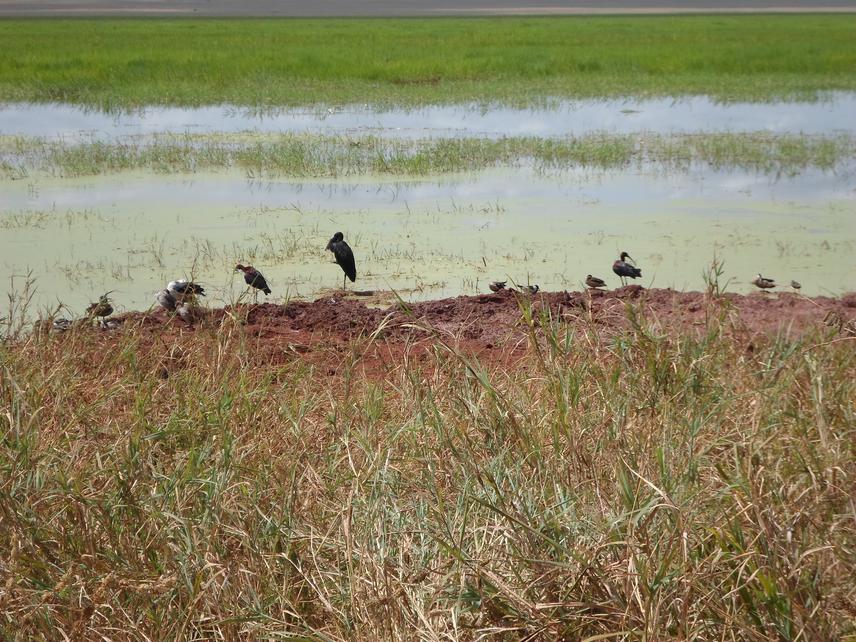Francis Moyo
Other projects
24 Jul 2018
Befriending Elephants: Upscaling The Use of Spotlights and Chili Bombs to Protect Crops against Elephant’s Raids in Tarangire-Manyara Ecosystem, Tanzania
The project focuses on national, global economic and legislative processes impact local environmental practice and poverty.

Swamp.
Tanzania endowed with vast natural resources, however its rural people continue to live in deep poverty, and environmental degradation and land-use conflicts are common phenomenon. Poverty and environmental challenges are exacerbated by lack of adoption and implementation of economically sound conservation policies and population growth. Lack of access and unequal sharing of benefits derived from natural resources enforce poverty, incite rural-urban migration and drive away rural youth the agricultural labour force important for rural economy. Marginalization and political inherent nature of natural resource governance amplify the complexity of natural resource management.
However, recent efforts to resolve poverty and land use conflicts in Tanzania have led to introduction of decentralized community based natural resource management. International community and donor agencies push developing countries to adopt and implement community base conservation policies assuming that when communities are involved in decision making processes they will better balance the need for environmental sustainability whilst considering community aspirations. Decentralization of natural resource management is predicted to enhance equity and sustainability. However, decentralization is not without challenges. The political inherent and dynamic nature of poverty and conservation and the effect of non-place (International) based forces to place-based (local) activities are complex and multifaceted.
The current research therefore investigates how national, global economic and legislative processes can better work to positively impact local environmental practice and poverty. The research seek to determine how non-place based forces affect place-based activities, and how costs and benefits of change are distributed among different actors with different powers. Research outcomes will inform policy re-adjustment and program design to better suit the local conditions. Research outcomes will be communicated in such a way it facilitate the designing of capacity building programs to target specific areas and individuals. The research long lasting impact to the community will be realized through identification of barriers and opportunities in participating in wildlife management. Development agencies and local government will be are encouraged to use research result to champion development and environmental sustainability.